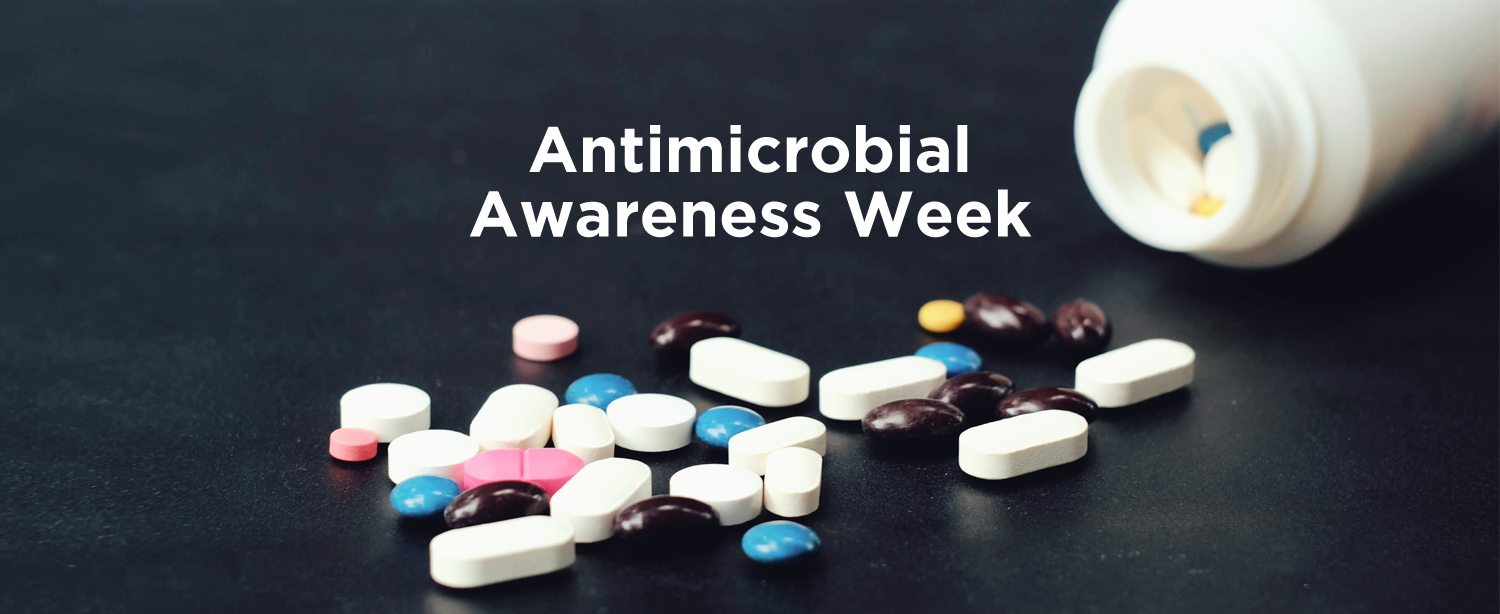World Antimicrobial Awareness Week (WAAW) aims to increase the awareness of global antimicrobial resistance (AMR) and to encourage best practices among public and health workers to help reduce the spread of drug-resistant infections. Antimicrobials – including antibiotics, antivirals, antifungals, and antiparasitics – are medicines used to prevent and treat infections in humans, animals, and plants.
What is Antimicrobial resistance (AMR)?
AMR occurs when bacteria, viruses, fungi, and parasites change over time and no longer respond to medicines. This makes infections harder to treat and increase the risk of severe illness and death. This makes medicines ineffective and infections persist in the body, increasing the risk of spread to others. WHO has declared that AMR is one of the top 10 global public health threats facing humanity. It is estimated to cause over 700,000 deaths per year, worldwide.
Dangers of Antimicrobial resistance (AMR)
In addition to death and disability, prolonged illness results in longer hospital stay, leading to increases medical expenses. A growing list of infections – such as pneumonia, tuberculosis, blood poisoning, gonorrhoea, and foodborne diseases – are becoming harder, and sometimes impossible, to treat as antibiotics become less effective. Medical procedures, such as surgery, including caesarean sections or hip replacements, chemotherapy, and organ transplantation, will become riskier due to AMR.
What causes Antimicrobial resistance (AMR)?
The main drivers of antimicrobial resistance include the misuse and overuse of antimicrobials; lack of access to clean water, sanitation, and hygiene (WASH) for both humans and animals; poor infection and disease prevention and control in health-care facilities and farms; poor access to quality, affordable medicines, vaccines and diagnostics; lack of awareness and knowledge; and lack of enforcement of legislation. The world urgently needs to change the way it prescribes and uses antibiotics. Even if new medicines are developed, without behaviour change, antibiotic resistance will continue to remain a major threat.
How to reduce the spread of Antibiotic Resistance?
Antibiotic-resistant germs can quickly spread across settings, including communities, the food supply, healthcare facilities, the environment (e.g., soil, water), and around the world. Here are some precautions to take to use antibiotics responsibly:
- Only use antibiotics when prescribed by a doctor
- Never demand antibiotics if your doctor does not prescribe them
- Always follow your doctor’s advice when using antibiotics
- Never share or use leftover antibiotics
- Prevent infections by regularly washing hands, preparing food hygienically, avoiding close contact with sick people, practising safe sex, and keeping vaccinations up to date.
Myths and facts about Antibiotic Resistance
Myth – It’s the body that becomes resistant to antibiotics
Fact – That is not true, it’s not you but the bacteria within your body that become resistant to antibiotics. Bacteria can even pass this resistance on to each other.
Myth – Antibiotics treat all types of infection
Fact – Antibiotics are only suitable for treating bacterial infections. Other infections, such as those caused by viruses or fungi, will not respond to treatment with antibiotics.
Myth – You must stop taking antibiotics once you feel better
Fact – No. You must complete the entire course of the prescribed antibiotics even if you are feeling better. If treatment stops too soon, the drug may not kill all the bacteria. You may become sick again, and the remaining bacteria may become resistant to the antibiotic that you’ve taken.
Myth – Using antibiotics incorrectly will not cause any major harm
Fact – Overuse and misuse of antibiotics can promote the development of antibiotic-resistant bacteria that can affect the entire world.
Myth – It is okay to share antibiotics
Fact – Never take antibiotics that are leftover from past treatments or given by family or friends. Only take antibiotics prescribed by a doctor. Leftover antibiotics may have expired or may not be correct for your illness.
Tags: antibacterial awareness week, Antibiotic Awareness, Antibiotic Resistance Causes, Antibiotic Resistance Facts, Antibiotic Resistance Myths, antibiotics, Antimicrobial Awareness, drug use, world antibiotic awareness week 2020


